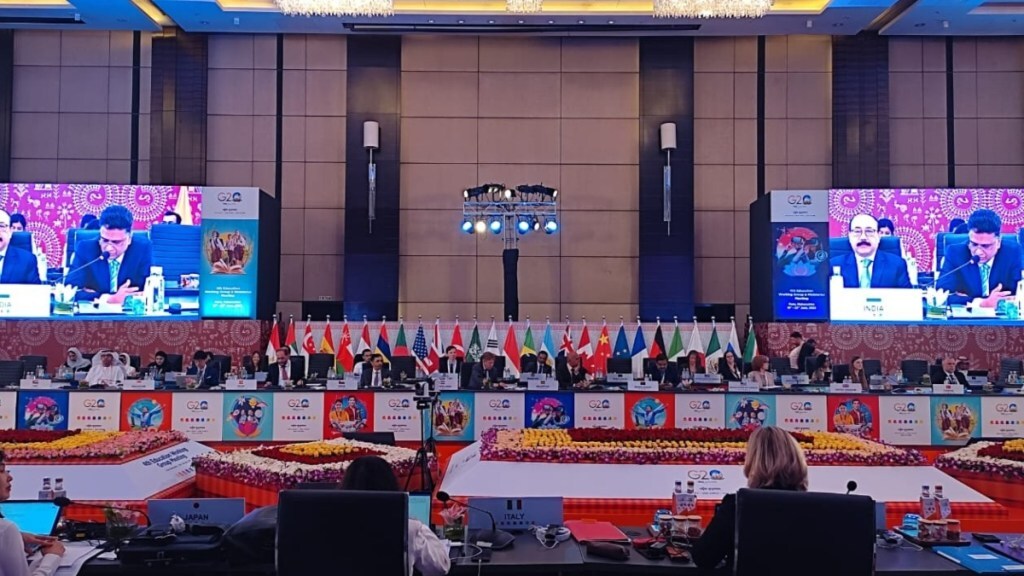As many as 11 states which accounted for 85% of dropouts in school education in 2022, presented their progress report at the fourth G20 Education Working Group (EDWG) meetings in Pune, Maharashtra. These include Uttar Pradesh, Bihar, Madhya Pradesh, Gujarat, Tamil Nadu, Rajasthan, Karnataka, Assam, West Bengal, Haryana, and Chhattisgarh.
As per the Education Ministry’s data released in May earlier this year, these states had recorded a dropout of nearly 30 lakh students at the secondary and higher secondary level. The Ministry is working on standardisation of Board Exams across these States and others under the aegis of PARAKH (Performance Assessment, Review, and Analysis of Knowledge for Holistic Development), as a standard-setting body. “This would help in preventing 58 lakh dropouts at secondary and higher secondary level every year, mapping failure of around 46 lakh students, and bringing back 12 lakh registered students back to schools,” the ministry said.
All 33 states and Union Territories (UTs), including the 11 present, have covered 35 lakh pre-primary, primary and secondary level teachers under the NISHTHA scheme with a focus on improvement in quality of teachers and learning outcomes of students. The Bihar government has allocated a budget of Rs 51,000 crore for education in 2022 to beef up its facilities. Furthermore, initiatives such as ‘Chahak’, a three-month ‘school readiness package’ has been introduced under Bihar Nipun Mission.
These states presented their best educational practices, teachers training, and steps taken towards bridging the gap in Foundational Literacy and Numeracy (FNL) skills-a target set under the National Initiative for Proficiency in Reading with Understanding and Numeracy (NIPUN) Bharat mission in line with the implementation of the National Education Policy (NEP) 2O2O.
Uttar Pradesh claims to have worked on its school infrastructure, besides introducing incentive based learning, and ensured continuous assessment of students to map the performance of 1.1 crore grade one to five students in a stipulated timeframe.
The states of Madhya Pradesh, Chhattisgarh, and Gujarat have also undertaken structural policy reforms and introduced age appropriate pedagogies to meet the needs of students. Meanwhile, the other states have committed to meet the NIPUN targets by 2027.
Capacity building of teachers and strengthening of FNL skills among students is the key focus of the fourth education working group meetings. A final report and declaration of bilateral arrangements among the G20 countries in the identified areas is expected to be released later.

